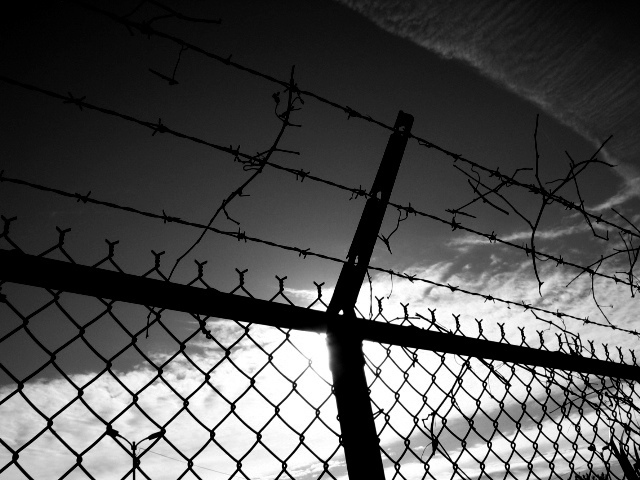Like this article? rabble is reader-supported journalism. Chip in to keep stories like these coming.
Update: On Thursday, Ralph Goodale met with Regina-based group Colonialism No More, who have been camping outside of the Regina INAC office for over 100 days, to discuss a variety of issues including the hunger strike by immigration detainees in Ontario.
Colonialism No More has expressed solidarity with the migrant strike and have pressed Goodale to meet with the detainees and end indefinite detention. Goodale said he would consider a meeting, according to the group.
Over 50 immigration detainees — all black and brown men — have continued their hunger strike for a second week to demand a meeting with Public Safety Minister Ralph Goodale and protest indefinite detention of migrants. The detainees have not eaten anything, only had water, for 14 days.
Despite calls from community organizations, lawyers, activists, and health professionals, Goodale shows no signs of agreeing to meet with the strikers.
Protestors confronted Immigration Minister John McCallum in Toronto last week and Colonialism No More – Solidarity Camp Regina protested his appearance at the University of Regina and eventually spoke with the minister.
In Ottawa last Thursday, nearly 20 people gathered outside of the Headquarters of Public Safety Canada to demand Goodale schedule a meeting with the strikers.
Several representatives of the minister’s office talked with the Ottawa protesters, but the representatives “did not convey that the minister understood the urgency of the situation,” Daniel Cayley-Daoust, a member of the End Immigration Detention Network, told rabble in an email.
“Nor [did they convey] that the minister would meet with those that are affected by the problems the minister has said he would look into,” said Cayley-Daoust.
Goodale did pen a blog post in the Huffington Post about the challenges facing the Canadian Border Services Agency (CBSA) and his objectives for detention reform, including building new federally funded facilities to house detainees.
But Goodale did not use the word “indefinite” once in his blog post. And “indefinite” is truly the operative word in the hunger strikers demands.
“Migrant detainees are held indefinitely, often in maximum security conditions, without formal charges laid against them or any reasonable access to legal support, and that is unacceptable,” Cayley-Daoust said.
Canada, one of few nations without a maximum period of detention for migrants, could, like the United States, impose a 90-day maximum in compliance with international law without overhauling the immigration system or building new facilities.
Strikers are “running out of time”
In a response blog post, Syed Hussan, a member of End Immigration Detention Network, notes that the hunger strikers “are running out of time” and urged Goodale to visit the detention centre.
“See for yourself how utterly and incredibly inhumane immigration detention is,” he wrote. “Act now before more people die.”
In an open letter to Goodale, over 65 health-care professionals called on Goodale to meet with the detainees.
“We are concerned that a continuing hunger strike will put already vulnerable people at further risk of physical and mental harm,” reads the letter.
“Three men have died while in immigration detention since you became Minister only nine months ago. At least 15 have died while in the custody of the Canadian Border Services Agency (CBSA) since 2000.”
The open letter highlights that the frequency of these hunger strikes and willingness to put “physical and mental health in jeopardy” are a cause for concern and need to be dealt with.
Immigration consultant MacDonald Scott told the CBC that the detainees on hunger strike are beginning to feel the effects, but championed their continued efforts and resolve.
Activists have called on Ontario Premier Kathleen Wynne to step in, since the federal government is using provincial prisons to house the detainees.
The End Immigration Detention Network continues to urge supporters to call, email and/or tweet Goodale.
“Detainees and their families are still waiting for things to change, and so are we,” said Cayley-Daoust.
Sophia Reuss is a Montreal-based writer, editor, and is a recent graduate of McGill University. She’s interested in how online media and journalism facilitate public accessibility and conversation. Sophia also writes and edits for the Alternatives International Journal. She is rabble’s news intern.
Photo: flickr/Christopher Sessums



